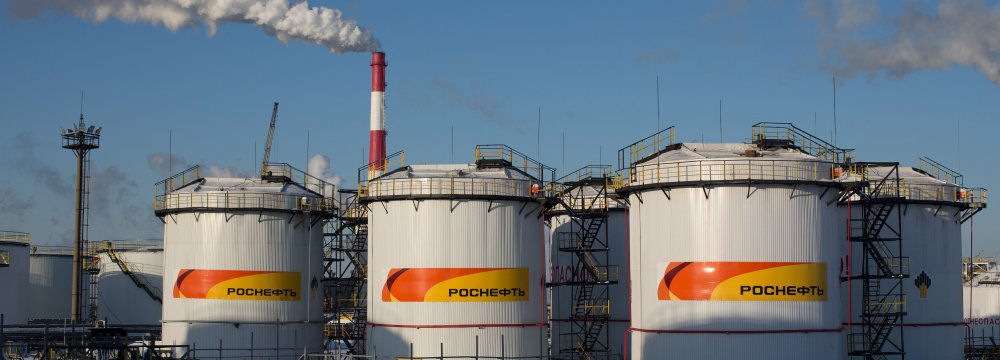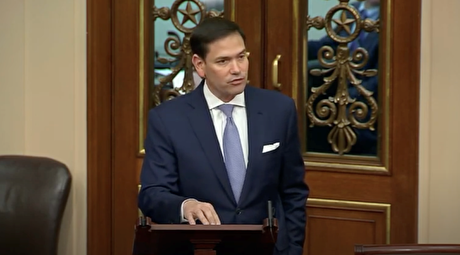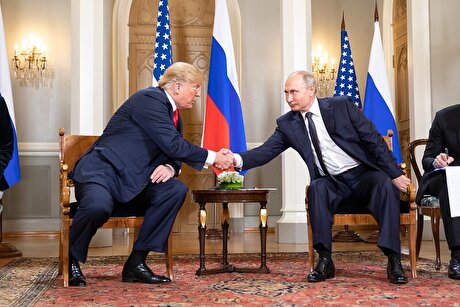
Putin Says Russia, Saudis Will Extend OPEC+ Oil Pact


Russian President Vladimir Putin announced the extension after a meeting Saturday on the sidelines of the Group of 20 with Saudi crown prince, Mohammed bin Salman, Bloomberg reported.
The comments open the door for a deal at the OPEC meeting next week in Vienna. OPEC delegates said the leaders have given their political blessing for an agreement, but plenty of work is left, including on the size of any potential output cut.
“There is no final decision on volumes, but together with Saudi Arabia we will do it," Putin told reporters about extending the agreement in Buenos Aires. “And whatever number there will be based on this joint decision, we agreed that we will monitor the market situation and react to it quickly.”
Saudi Arabia said through its state-owned press agency that Riyadh and Moscow had held talks in Buenos Aires about "rebalancing" the oil market. While both talked about progress and extension of the cooperation, neither the Russian nor Saudis made any formal declaration about output volumes.
Oversupply in the Market
Earlier this week, an advisory group to OPEC told ministers the market is oversupplied, with a need to cut about 1.3 million barrels a day from October levels. The advisory group’s proposals are not binding, and OPEC ministers often choose a different path. Yet the view that the oil market is oversupplied is a signal the organization is laying the groundwork for action.
OPEC, which pumps four-in-ten barrels produced worldwide, will convene in Vienna on Dec. 6 to discuss output cuts after oil prices in November suffered the largest monthly drop since the global financial crisis in 2008.
Brent crude, the global benchmark, is down about a third from an October high due to rising supply from the US shale regions, Saudi Arabia and Russia, slower demand growth and American waivers on oil sanctions on Iran. Brent hit a 4-year high of $86.76 a barrel in early October before slumping to $58.71 Friday. Oil trading has been volatile over the last week as traders took positions ahead of the OPEC gathering.
In public and private, Trump has told the Saudis he wants cheaper crude, even disclosing that he berated the crown prince in an October phone call when international benchmark Brent surged above $80. Prior to the collapse in oil prices, the kingdom was responsive to Trump’s demands.


Codelco seeks restart at Chilean copper mine after collapse

Hudbay snags $600M investment for Arizona copper project

Uzbek gold miner said to eye $20 billion value in dual listing

BHP, Vale offer $1.4 billion settlement in UK lawsuit over Brazil dam disaster, FT reports

Peabody–Anglo $3.8B coal deal on the brink after mine fire

A global market based on gold bars shudders on tariff threat

SSR Mining soars on Q2 earnings beat

Minera Alamos buys Equinox’s Nevada assets for $115M

Century Aluminum to invest $50M in Mt. Holly smelter restart in South Carolina

Samarco gets court approval to exit bankruptcy proceedings

US eyes minerals cooperation in province home to Reko Diq

Allegiant Gold soars on 50% financing upsize

Explaining the iron ore grade shift

Metal markets hold steady as Trump-Putin meeting begins

Trump to offer Russia access to minerals for peace in Ukraine

Gemfields sells Fabergé luxury brand for $50 million

Gold price stays flat following July inflation data

Eco Oro seeks annulment of tribunal damage ruling

Zimbabwe labs overwhelmed as gold rally spurs exploration, miner says

Samarco gets court approval to exit bankruptcy proceedings

US eyes minerals cooperation in province home to Reko Diq

Allegiant Gold soars on 50% financing upsize

Explaining the iron ore grade shift

Metal markets hold steady as Trump-Putin meeting begins

Trump to offer Russia access to minerals for peace in Ukraine

Gemfields sells Fabergé luxury brand for $50 million

Gold price stays flat following July inflation data

Eco Oro seeks annulment of tribunal damage ruling














